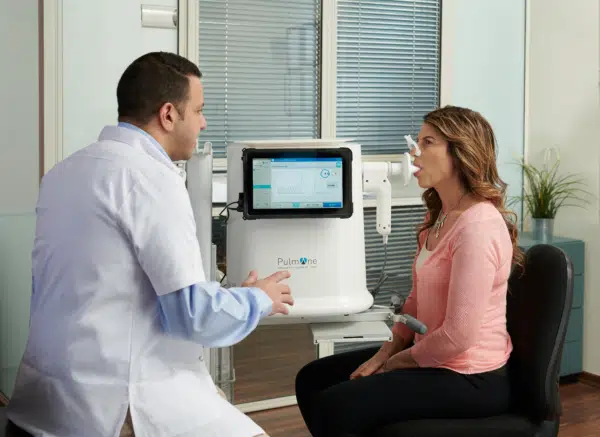 go back
go back
 go back
go back
Your ASTHMA is at WORK
Where we work can have an impact on our overall health that goes beyond mental and emotional well-being. Physical work environments — whether in an office, warehouse or construction site — can play an important role in the lives of those with asthma and allergies.
As one of the most common diseases in the U.S., asthma impacts about 21 million adults, according to the Centers for Disease Control. In fact, occupational exposures are responsible for 1 in 6 adult-onset asthma cases, according to the American Lung Association.
Whether you’ve managed asthma for years or you’ve developed occupational asthma, here’s what you can do to manage your symptoms while at your 9-to-5.
Why Is My Asthma Worse at Work?
No matter if you work indoors or outdoors, you may be exposed to allergens and irritants at work that differ from what you face at home. Exposures to substances in your workplace can cause occupational asthma. In fact, 21.5% of working adults say that their asthma gets worse from work exposures. Common exposures such as mold, plants, solvents, dust, vehicle exhaust, and chemicals can incite or worsen asthma symptoms.
Testing, like Pulmonary Function Tests, can tell how well your lungs are working by measuring how much air your lungs can hold, how quickly you can blow air out of your lungs, how well gas is transferred from the lungs to your bloodstream, and how well your lungs respond to pulmonary medications. This process takes less than 20 minutes and provides valuable information for your physician to decide how to handle your care.

Clarity in 20 Minutes
Your provider may recommend Pulmonary Function Testing if you are experiencing workplace exposure to lung-damaging chemicals, shortness of breath or difficulty breathing while on the job, or if you are coughing or wheezing.
Get Clarity TodayHow Do You manage your Asthma while at Work?
Depending on what you do for a living, you may not have much say over your work environment or how often you are exposed to irritants and allergens. I tell my patients with asthma that it’s a good idea to keep their inhaler close by so they can take care of any symptoms as they come up. Also, the American Lung Association says there are five main things you can do at work to ease asthma symptoms:
- Create an asthma action plan. Make a written list of the steps you need to take to make sure your asthma symptoms don’t get worse. This plan also tells you, your coworkers, or your boss exactly when someone should call your doctor or when you should go to the emergency room.
- Avoid exposure. No matter if your workplace is an open field or temperature-controlled office, allergens and irritants can be anywhere. It’s important to pinpoint exactly what exposures trigger your asthma symptoms. From there, it might be easier to devise a plan to avoid them.

- Seek help from our specialists. Make an appointment with an AllerVie Health asthma specialist as soon as you have asthma symptoms, or your condition worsens. Keep track of your symptoms so we’ll have a clear picture of what’s going on. We have unique tests specifically designed to discover what is going on with your lungs and are dedicated to helping you find a solution.
- Stay vigilant. Alert your supervisor as soon as you’re experiencing unhealthy air or breathing problems. Keep in mind: By law, your employer must inform you of “general and specific hazards” associated with your work.
- Put yourself first. Make sure you’re taking any prescribed medication regularly, seeing your health care provider, and staying clear of exposures that worsen your asthma symptoms. While there is no cure for asthma, it can be managed with proper care.

Medically Reviewed By: Maxcie Sikora, MD
Reviewed on: Nov. 10, 2022
Our team of writers, editors, and medical experts goes over each article carefully to make sure the information is correct and that only reliable sources are used.
We regularly check to see if the info in this article matches up with the latest scientific research and expert advice so that we can give you the most up-to-date information. See list of trusted resources here.
Get Help Managing Asthma at Work
Asthma symptoms can take a toll on your performance and enjoyment at work. But it doesn’t have to be that way. With many convenient locations across the country, we have asthma specialists who can help you manage asthma at work.
Make an Appointment